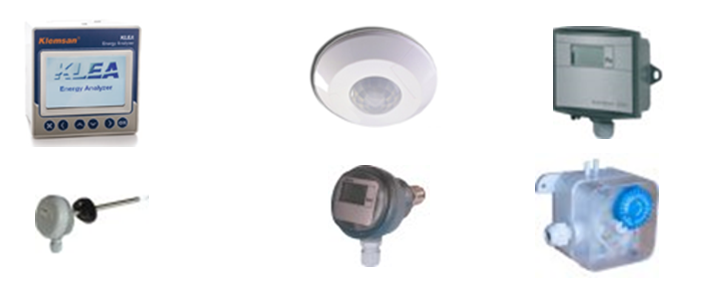SMART MANUFACTURING
There is considerable new investments in recent years aimed at upgrading and optimizing factories and supply chains from a global view point to strengthen its presence in the globalization of business environment.
Therefore to future proof our factories, implementation of inovative IoT (Internet of Things) is essential in accordance with development of Industrial IoT technologies in the world such as "Industry 4.0".
Harness the Potential of IoT and Open Technologies to Sustainability
Our open technologies in lighting and air conditioning, CCTV, elevator monitoring, signage inside elevators, and control devices for residential API/ECHONET communication.
In order to visualize facility operation information, understand the energy-saving performance and establish a structure including maintenance, the integration of various equipment and information is necessary with IoT technologies.
M2M CONTROLLERS
FEATURES
INSTANT Acceptance & Conversion Of Up To 300++ Protocols
FREE HMI – Drag & Drop To Create Visualization. No Programming Needed.
FREE VTC (Virtual Task Control) – Drag & Drop To Create Flow Charts To Drive Tasks, Operations, Control, Transmissions & Calculations. No Programming Needed.
FREE C-logger.
FREE Middleware To Integrate With Systems On Matlab & Labview.
FREE OPC-UA Built In.
FREE Azure / AWS / Fujitsu Cloud Engines Built In.
ABLE Easily Integrate With Private Cloud / Other Cloud Providers OR On-Premise Servers.
NO Yearly License Fees. FREE Updates & Upgrades.
Sensors
Over 500 Indoor & Over 1500 Outdoor Sensors
Environment Sensors (Air / Water / Soil)
Sensors For Manufacturing Equipment
Sensors To Provide Data For Predictive-Preventive Maintenance
Sensors For Building Management
Sensors For Clean / Green Energy Monitoring & Control
Sensors For Farms
Sensors with LoRA / Sub-GHz Wireless
Customizable Dashboards
Drag function icons from the tool box to the grid area. A variety of task processing can be added with these intuitive operations. There is no need for knowledge of programming languages or for a special development environment.
A variety of tasks such as device I/O, calculations, flow control, character string operations, cloud data transmission, and file operations can be set easily from a web browser in the same manner as drawing a flow chart.
Operation of Production Facilities (OEE)
The system monitors the operational status of legacy facility that has no communication capabilities by using our sensors and relays. If it uses PLCs, detailed information can be collected via PLC communication.
The collected data can be transmitted to upper-level servers using HTTPS data post or MODBUS/TCP slave function. Monitoring of facilities is possible on Web browser of Laptop PCs or Tablets by making web-based monitoring screen on built in controller HMI.
Production Capacity Improvement
This system realizes monitoring of the whole factory operation by supervisory software.
The system enables integration of legacy machine tools with MES (Manufacturing Execution System) by using the M2M controller with built-in OPC UA server. Work load balance and production capacity improvement will be achieved by clarifying the capabilities of all production facilities in the factory.
Three-Phase Motor Breakdown Prediction Monitoring
The Insulation Deterioration Monitoring Module is a revolutionary product for measuring the insulation resistance of three-phase motors that otherwise cannot be measured without stopping the device. With the Insulation Deterioration Monitoring Module, constant motor insulation deterioration monitoring is possible for three-phase motors, allowing for detection of possible signs of failure.
No need to Stop Equipment for Inspections
Support for Low-voltage Three-phase/AC Servo Motors (Up to 30 kW, ⌀25 mm ZCT included)
Work without a Computer, Cloud Compatible
AI-Based Equipment Error Detection Using Current Sensors
The controller is used to collect data from external clamp-on current sensors installed on cables supplying power to equipment such as compressors, agitators, and cutting machines.
This collected data is used in the LOSSØ-Standard analysis model, with analysis initiated simply by specifying and registering a normal pattern. Users can also use the Remodel function to fine-tune the model on their own to improve accuracy.






